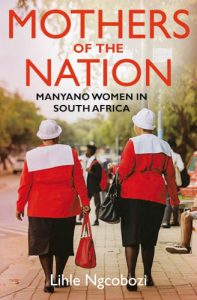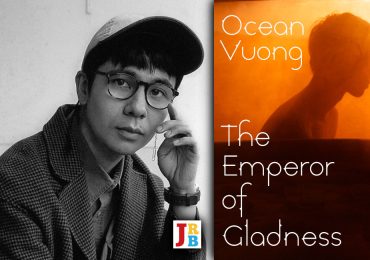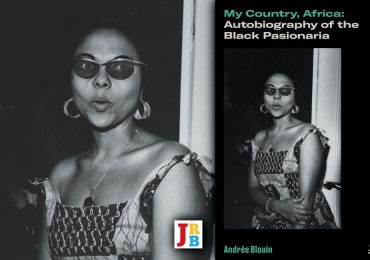Lihle Ngcobozi’s Mothers of the Nation reveals the social complexity and political depth of the Manyano Women’s movement, writes Athambile Masola.

Mothers of the Nation: Manyano Women in South Africa
Lihle Ngcobozi
Tafelberg, 2020
African feminist scholarship in South Africa is an enriching intellectual project, one that takes seriously the lives of black women. In response to a patriarchal framework that privileges the public rather than the private, often centring the public lives of men, African feminist scholarship recognises and acknowledges interiority, the private, as deeply intertwined with the public: ‘the personal is political’. This interiority is often manifest in the intimate connections women have with other women—mothers, daughters, lovers, friends—which create a kind of lattice in support of the complex lives women have to navigate. These kinds of relationships are what Lihle Ngcobozi seeks to explore in Mothers of the Nation: Manyano Women in South Africa.
In the book, Ngcobozi enters the lives of oomama bomanyano (Manyano women), in order to show how the private life of prayer continues to have consequences for women’s public lives. Mothers of the Nation emerges from Ngcobozi’s Master’s research, ‘Lizalise Idinga Lakho [Honour Thy Promise]: The Methodist Church Women’s Manyano, the Bifurcated Public Sphere, Divine Strength, Ubufazi and Motherhood in Post-Apartheid South Africa’. Undertaking a number of life history interviews, Ngcobozi spoke to seventeen Methodist Church Women’s Manyano of the Lamontville Circuit in KwaZulu-Natal. Although the book began with an academic project, Ngcobozi weaves in her personal reflections of growing up ‘surrounded by the Manyano’ all her life, together with political discourse about expressions of citizenship, and she reads the Manyano women through the public and counterpublic sphere.
Because much has been written about the history of the formation of uManyano, Ngcobozi focuses on their public expression of motherhood and womanhood, arguing that they ‘should be read with a level of complexity and depth’, observed through the focus on ukubekezela (endurance/perseverance) and ubufazi (the politics of being a woman, which can be translated into ‘womanhood’ but is more complex).
uManyano loomama is a women’s church organisation, popularly recognised by its distinct uniforms and Thursday prayer meetings. The word ‘manyano’ comes from the Nguni language group and means ‘unity’ or ‘to join’; in Zimbabwe similar groups are referred to as Ruwadzano. Over time Manyano has become a word of expanded meanings, encapsulating prayer meetings as well as the role of women in black churches (the organisation originated in 1907 in the Methodist Church, but has since not been confined to this church).
As Ngcobozi demonstrates, Manyano women are more than just ‘church women’ who follow organised religion blindly. Rather, they hold ‘a critical space in the South African imagination of black womanhood’. They represent an aspect of black women’s lives that is often elided and not fully understood or appreciated in feminist scholarship when black women’s relationship with organised religion is interrogated. This is in large part the result of a dominant interest in women’s political movements that often privileges dynamic youth organisations rather than organisations run by elder women in working class communities.
The women’s movement in post-apartheid South Africa has morphed into a complex structure that reflects the political contexts of the past twenty-seven years. At the level of national political office, there has been a growing number of women holding ministerial positions, as well as two women deputy presidents, and women’s rights were a founding tenet of South Africa’s democracy. But the amount of gender-based violence and gender inequality is still shockingly high. High profile movements have been formed in response, such as the One in Nine Campaign, established at the start of the rape trial of former President Jacob Zuma, and more recently the Total Shutdown movement, which began in 2018 in protest at the government’s haphazard response to gender-based violence and femicide. Much of the discourse on the nature of black women’s political engagement has focused on public movements such as these, established in opposition to the state. The backdrop to this grand politics, however, is the lives of women in their communities and homes. This is where the image of oomama bomthandazo (mothers of prayer) is most crucial, even while it is unexplored.
The history of Manyano women dates back to colonial conquest, and is, as Ngcobozi writes, ‘the longest standing and most prolific African matriarchal organisation’. The colours red, white and black the women wear may be seen as reminiscent of British soldiers fighting the wars of dispossession during the arrival of British colonialism in Southern Africa. Even with the complicated history of this longstanding women’s movement, and its origins in Christian missionary fervour, the role that Manyano played and continues to play in post-apartheid South Africa is subversive. Over time, black women who have opted to become members of Manyano have subverted the country’s colonial legacy. As Ngcobozi points out, ‘black women within the black church made use of their women and mother groups as an entry point for their political participation’. Therefore, for Manyano women, their role as ‘mothers who pray’ subtly enables them to take up a position in the public sphere.
At the core of umanyano, after all, is motherhood and prayer. While feminism has critiqued traditional notions of motherhood and the role religion plays in limiting black women’s ways of being in the world, African feminists such as Nthabiseng Motsemme(1) have argued that if feminist scholarship truly wants to take seriously the complexities of black women’s lives, it has to take seriously spirituality and the ways in which African women choose to express their practices through the church, African traditional beliefs and rituals, as well as organic and fluid spaces in their homes. Motsemme refers to prayer as ‘speeches of desire’, in order to elevate this private and agentic practice beyond the dogma of religion. Ngcobozi aims to do the same, challenging the idea that the role of Manyano women became apolitical with the advent of political freedom in South Africa, because, she writes, ‘the Manyano woman looks to internal group survival strategies, which include ukubekezela (endurance/perseverance), divine strength and prayer to confront their circumstances’. While Manyano women occupied a different position during apartheid, with respect to their efforts at organising against state-sponsored violence, post-apartheid South Africa still demands that they find ways to survive amid rising inequality.
One of the key umanyano rites Ngcobozi focuses on is the robing ceremony, which happens during Easter; a public declaration the women make in order to become recognised as part of oomama bomthandazo. While this is an overtly public ritual in the context of the church, it stems from a place of interiority. As one of the mothers Ngcobozi interviewed during her research shares: ‘Prayer is a big thing. Whenever I see a Manyano woman, I see a woman who has the world in her hands and has the power that is prayer.’ The imaginative and spiritual world of prayer is elevated to a place of power rather than religiosity. As one of the participants in the study reflects: ‘When we are praying, we are working. When we are singing, we are working. When we go visit the sick we are working. There is nothing about this that does not need you to work. Everything is work.’ Thus the private world of prayer also centralises black women’s subjectivity and labour, which is often at odds with a public world that often reduces black women to objects with no interiority.
Mothers of the Nation was launched during the lockdown period that disrupted every aspect of life, and in it Ngcobozi raises questions that will be central as people recover from its effects, particularly those affecting black women. The book ends with a chapter titled ‘Networks of care and kinship’, which teases out notions of a complex system of mothering, disrupting the notion of the nuclear family. Mothers of the Nation, therefore, speaks to our past and present, but also presciently offers insight into how South African families will be able to survive the devastating and long-lasting effects of the global pandemic.
- See: https://www.youtube.com/watch?v=kXCUjh0kJUM
- Athambile Masola is writer, blogger and former Mandela Rhodes Scholar. She has a PhD from Rhodes University focusing on black women’s historiography, intellectual histories and life writing, and is a member of Bua-Lit Collective, a group of researchers and educators advocating for the use of African languages as a social justice issue. Follow her on Twitter.






I like this history and I would like to have the book